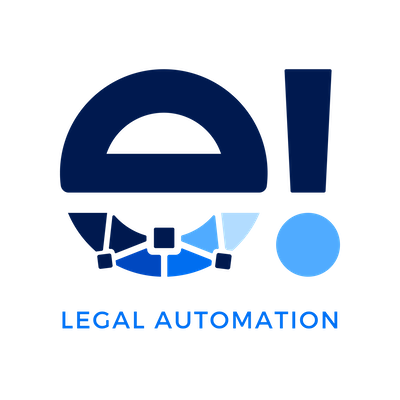Legal and compliance professionals are embracing AI to revolutionize their work. From automating transcriptions to analyzing documents with NLP, AI is boosting efficiency and offering deeper insights. This article explores how AI is transforming legal and compliance practices. We’ll look at key applications like automated transcription, sentiment analysis, and document management systems. We’ll also discuss important considerations like accuracy, data security, and legal compliance. AI not only helps manage massive amounts of legal documents but also uses predictive analytics to forecast case outcomes and improve strategic decision-making. By enhancing efficiency and providing valuable insights, AI is fundamentally changing the legal and compliance landscape.
Automated Transcription
Automated transcription offers a range of benefits for the legal and compliance industry, improving the efficiency, accuracy, and searchability of information. They can reduce the need for manual transcription, speeding up the process and allowing lawyers to focus on analyzing the content rather than waiting for transcriptions.
Key applications and benefits of automated transcription include:
- Increased Efficiency: Legal professionals spend a significant amount of time reviewing audio recordings. Automated transcription tools like Sonix or Trint can generate transcripts in minutes, freeing up valuable time for analysis and strategy.
- Improved Search & Review: Imagine searching through hours of recordings to find a specific detail. Transcripts are fully searchable, allowing lawyers to pinpoint crucial moments and review statements with greater ease. Moreover, transcripts provide a text-based record for those who are hard of hearing or prefer to review information visually.
- Enhanced Client Communication: Providing transcripts to clients allows for a better understanding of legal proceedings and keeps them informed.
- Compliance Training & Recordkeeping: Recordings of compliance workshops or audits can be transcribed to ensure a verifiable record of training completion and details are all documented and easily accessible for future reference.
However, legal and compliance professionals need to consider some crucial factors and best practices:
- Accuracy: Automated transcription accuracy has significantly improved, but while advanced, it is not 100% accurate and perfect. Legal terminology, strong accents, and background noise can all lead to errors. For critical documents, a human review of the transcript is always advisable.
- Data Security & Privacy: Legal recordings often contain sensitive information. Choose a transcription service that prioritizes data security. Look for features like encryption of data at rest and in transit, and access controls that limit who can view transcripts. Some automated services do not meet the strict data privacy standards required in fields like law, medicine, or finance. Professionals in these areas should carefully examine a provider’s security practices before using them.
- Legal Compliance: In some authorities, recording conversations without consent is illegal. Ensure you have permission from all parties before transcribing. Additionally, data privacy regulations like GDPR or CCPA may apply. Make sure your chosen service adheres to these regulations.

Sentiment Analysis
By analyzing the tone, word choice, and speech patterns, AI can provide insights into the speaker’s emotional state or detect inconsistencies in their story. This can be particularly useful in assessing a statement’s reliability or identifying areas that may require further investigation.
Sentiment analysis, powered by Artificial Intelligence (AI) and Machine Learning (ML), has become a powerful tool for analyzing vast amounts of textual data and understanding the emotions and opinions conveyed within. This technology is transforming the legal and compliance industry by offering deeper insights into communication and content analysis.
Advantages of AI-powered Sentiment Analysis in Legal and Compliance:
- Enhanced Risk Assessment: AI can analyze emails, social media posts, or internal documents to identify potential risks or areas of concern. For example, negative employee sentiment towards a new policy might indicate potential compliance issues.
- Efficient Discovery Process: Legal teams can leverage AI to analyze massive datasets during eDiscovery, pinpointing relevant documents with positive or negative sentiment towards a specific topic. This can significantly reduce review time and costs.
- Improved Client Communication: Analyzing client communications can help lawyers understand client satisfaction and identify areas for improvement. Furthermore, this allows for proactive client service and stronger relationships.
- Fraud Detection: AI can analyze financial documents and communication to detect signs of potential fraud, helping compliance officers identify suspicious activity.
Use Cases for Legal and Compliance Professionals:
- Mergers and acquisitions Due Diligence: AI can be used to analyze news articles, social media posts, and public filings to gauge public perception of a target company, providing valuable insights for M&A negotiations.
- Compliance Monitoring: Companies can leverage AI to analyze internal communications and identify potential violations of regulations or company policies. This proactive approach can help mitigate compliance risks.
- Market Research & Brand Reputation Management: Law firms can offer clients sentiment analysis services to understand public perception of their brand and identify potential legal issues arising from negative online sentiment.
While AI-powered sentiment analysis offers significant advantages, it is important to remember that it is a tool, not a replacement for human expertise. Nuances in language and context can still be missed by AI. Therefore, human oversight and interpretation remain crucial.

Natural Language Processing (NLP)
Natural Language Processing can be used to analyze the content of statements, identifying key themes, facts, and discrepancies. Hence, they can help legal professionals quickly grasp the essence of a statement and compare it against other evidence or statements to find corroborating or conflicting information. Natural Language Processing (NLP) is revolutionizing the legal and compliance industry by enabling computers to understand and interpret human language. This technology goes beyond simple sentiment analysis, delving deeper into the meaning and structure of legal text.
It is important to note that NLP is still under development, and interpreting complex legal language can be challenging. However, as the technology continues to evolve, NLP is poised to become an even more powerful tool for legal and compliance professionals.
Some of the advantages and use cases of NLPs in the legal industry include:
- Enhanced Contract Review: NLP automates the process of identifying key clauses, obligations, and risks within contracts, saving lawyers considerable time and effort during contract review.
- Efficient Legal Research: NLP can analyze vast legal databases and case law, identifying relevant precedents and legal arguments to support a case. This can significantly improve research efficiency and accuracy.
- Regulatory Compliance Monitoring: NLP tools can be used to analyze regulations and company policies, ensure compliance, and identify potential areas of concern.
- Automated Legal Document Summarization: NLP can generate summaries of complex legal documents, allowing lawyers to quickly grasp the key points and identify critical information
Document Management and Organization
AI tools can help organize and categorize statements by relevance, topic, or any other specified criteria. This makes it easier for legal teams to access and reference statements during a case, improving efficiency and effectiveness. In the fast-paced world of legal and compliance, efficient document management and organization are essential. A well-organized system ensures critical information is readily available, streamlining workflows, reducing risks, and improving overall efficiency.
A robust Document Management System (DMS) offers many benefits for legal and compliance professionals. Firstly, it enhances accessibility. Lawyers and compliance officers can ditch the time-consuming searches through physical files or disorganized digital folders. Instead, they can quickly locate relevant contracts, emails, and other documents with a few clicks. As a result, this improved accessibility translates to greater efficiency.
Secondly, DMS fosters collaboration. The system facilitates easy document sharing and version control. Everyone involved in a case or compliance project has access to the latest information. Therefore, this eliminates confusion and ensures everyone is working on the most up-to-date documents.
Thirdly, a well-organized DMS reduces the risk of errors. Misplaced documents and missed deadlines become outdated. The system keeps everything organized and readily available, minimizing the potential for mistakes.
Security is another key benefit. DMS solutions offer robust security features to safeguard sensitive legal and financial information. This gives peace of mind and ensures client confidentiality.
Finally, a DMS streamlines compliance audits. Having a centralized repository of documents simplifies responding to audits and regulatory inquiries. No more scrambling to gather information from various locations. With a DMS, everything is organized and readily accessible, making audits a breeze.
Choosing the Right DMS:
There are many DMS solutions available, and the best choice for your organization will depend on specific needs and budget. Here are some key factors to consider:
- Scalability: Choose a system that can grow with your organization’s document volume.
- Security Features: Ensure the DMS offers robust security measures to protect sensitive data.
- Integration Capabilities: Look for a system that integrates seamlessly with other legal and compliance software you use.
- Ease of Use: A user-friendly interface is crucial for ensuring team adoption and efficient document management.
By implementing a robust document management system and fostering a culture of organization, legal and compliance professionals can significantly improve efficiency, mitigate risks, and ensure success.

Highlighting Important Information
AI is becoming a game-changer in legal document review, with one key function being its ability to highlight valuable information. Traditionally, lawyers spend countless hours sifting through mountains of contracts, depositions, and other legal documents to identify crucial details. AI can automate this process by analyzing vast amounts of text and flagging potentially significant information.
AI algorithms can be trained to highlight potentially important pieces of information within statements that might warrant further attention. This includes specific dates, locations, parties mentioned, and any other data points that could be crucial in building a case.
Imagine an AI trained to recognize specific patterns within legal documents. It can pinpoint dates, locations, names of parties involved, and other data points that might be central to a case. This could include identifying deadlines mentioned in a contract, pinpointing locations of potential witnesses in depositions, or highlighting specific clauses within complex legal agreements.
These AI-powered highlights act as a roadmap for lawyers, guiding them toward the most relevant sections of a document. This saves them significant time and allows them to focus their expertise on analyzing the highlighted information and developing legal strategies.
However, as mentioned before, it is important to remember that AI is a tool, not a replacement for human judgment. While AI can identify potentially important information, lawyers still need to critically evaluate the flagged content and determine its true significance to the case.
Translation Services
For documents or statements given in a language different from that of the legal team, AI-powered translation tools can provide quick and accurate translations, making it easier to work on international cases or with clients who speak different languages. While not a substitute for certified human translation in critical legal documents, AI translation can provide a solid foundation for understanding the gist of foreign language materials. This streamlines the legal process by enabling lawyers to identify key information and determine if further action, like hiring a human translator, is necessary.
Predictive Analytics
The legal world is embracing the power of prediction with AI-powered analytics. These advanced models can analyze vast troves of legal data, including case histories, judge rulings, and legal arguments, to forecast the potential outcomes of lawsuits. This newfound predictive power is transforming legal strategy by providing lawyers with data-driven insights.
Imagine a lawyer preparing for a complex case. By feeding relevant details into an AI model, they can receive a statistical analysis of similar cases, including factors like judge tendencies, successful arguments presented, and typical settlement ranges. This information empowers lawyers to make informed decisions about case strategy. Knowing the likelihood of success through data analysis allows them to set realistic expectations for clients, negotiate settlements more effectively, and allocate resources strategically.
However, it is important to remember that AI predictions are not fortune-telling. These models are based on historical data and cannot account for unforeseen circumstances. A lawyer’s expertise and experience remain crucial for interpreting the data and tailoring the strategy accordingly.






